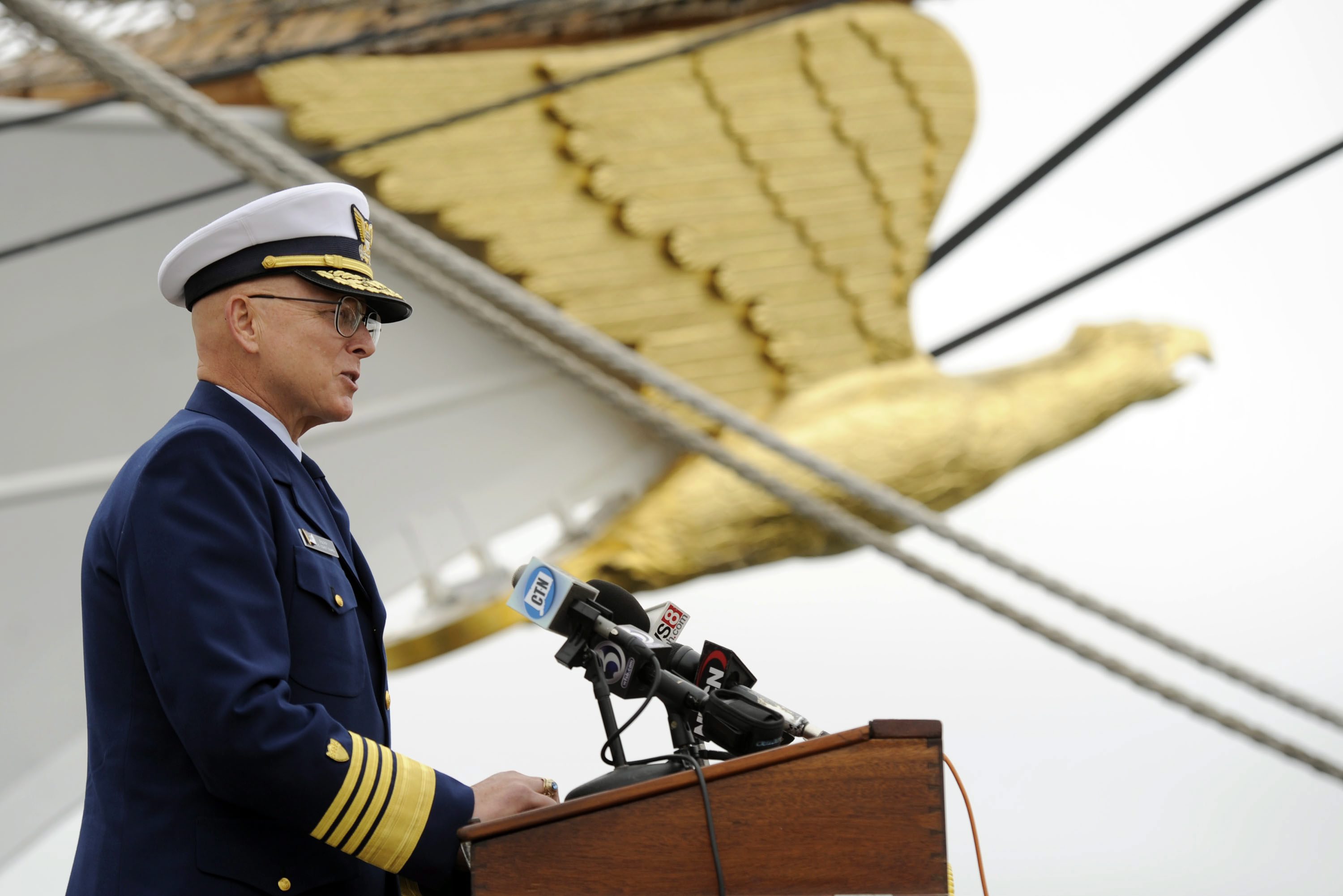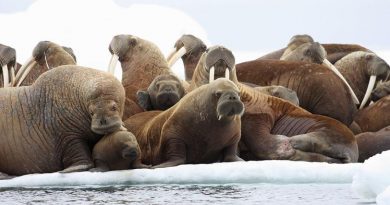Blog: USA steps up Arctic game with appointment of Papp as special representative

Since 2006, eleven different states have appointed Arctic Ambassadors/Envoys, and last week the United States became the twelfth, with Secretary of State John Kerry naming Admiral Robert Papp, the recently retired Commandant of the US Coast Guard, as its Special Representative to the Arctic.
Papp’s appointment has come with near universal praise from Alaskan politicians, with both federal Senators applauding the decision and indicating that the selection of Papp was not a surprise to them. Senators Murkowski and Begich have long advocated the creation of an Arctic Ambassador-level post and two Congressmen from Washington and Wisconsin even introduced a bill to the House in April calling for the same. Indeed, Kerry announced back in February that a Special Representative to the Arctic would be named, and now the speculation can end.
While Papp has a distinguished record and much domestic support, I registered surprise at his appointment because it indicates such a different approach to Arctic regional strategy than that of Canada. Canada has had three Arctic Ambassadors and all have been Inuit. If that speaks volumes about Canada’s Arctic policy, reflected in its current Arctic Council chairmanship theme of “development for the peoples of the North”, then what does the appointment of Papp say about US Arctic policy?
The Reluctant Hegemon
Until recently, Washington’s interest in Arctic regional politics could best be described as agnostic: it didn’t know and it didn’t care, but persisted with a kind of benign neglect of the Arctic Council and its work so long as it centred around the unobjectionable activities of environmental scientific research and diplomatic engagement of indigenous peoples. The USA indulged in Canada’s desire in the 1990s to establish a permanent intergovernmental forum to discuss regional issues, but ensured that (1) no defined financial contributions would be required; (2) the forum would impose no binding legal obligations; and (3) discussion on military issues would be prohibited. With those conditions met, it was happy to provide the minimum engagement required but ascribed no strategic importance to the Council or its work and had minimal influence on it, except in the form of the many American scientists and Alaskan policymakers who contributed to the working groups in a non-official capacity.
However as the Arctic began to grow in international and strategic importance, the US position evolved. George W. Bush’ last significant foreign policy act was to submit a National Security Presidential Direction on Arctic region Policy (NSPD-66) in January 2009, which identified security, impacts of climate change, the Arctic Council, and resource development – namely oil and gas, as priorities. Subsequently, the US Navy developed an Arctic Road Map in 2009 (updated in 2014), the US Coast Guard, under Papp, submitted an Arctic Strategy, and President Obama proffered his own National Strategy for the Arctic Region in May 2013, a more visionary and ideological document than Bush’s NSPD-66.
With the United States set to take over the Chairmanship of the Arctic Council in Spring 2015, it was time to have a point person for the region, with Papp presumably Chairing the Senior Arctic Officials beginning next year.
Sea Ice, Shipping, Security, Science
His appointment indicates to me that Washington very much sees the Arctic more as an Ocean than a political region. Indeed, the State Department division responsible for Arctic Council affairs is the Bureau of Oceans and International Environmental and Scientific Affairs. This means that shipping, melting sea ice, fisheries, offshore oil and gas, and effective control over and stewardship of a dynamic marine environment will remain priorities. Other themes we can expect from Kerry and Papp are the impacts of climate change in the Arctic, which have been muted under Aglukkaq and Harper. And finally one cannot underestimate the importance of maintaining freedom of navigation in the newly opening Arctic waters to US strategic interests as a naval superpower and Papp might be expected to press that point. There is no doubt that sea ice, shipping and security are important issues for the Arctic Council, and the Arctic states more broadly, to address. But they are also the issues one would prioritize if your understanding of the Arctic was limited to reading front page headlines over the past 6 years.
With a focus on ocean and scientific issues, as indicated by the additional appointment of Alaskan Fran Ulmer as Special Advisor on Arctic Science and Policy, the differences in philosophy between Canada and the US could hardly be more stark. At their essence they are this: whereas Canada projected its national view of the Arctic onto the rest of the region, the US will project its global view of the Arctic onto the region. Papp’s appointment shows that America’s Arctic – Alaska- is not becoming more important in Washington; rather the Arctic Ocean is.
Too Many Cooks in the Kitchen
To say that Papp is not a strong candidate who usefully reflects and defines US Arctic interests would be a mistake. And in that way, the US selection closely matches the Canadian tapping of Leona Aglukkaq in function if not in form. After 15 months of the Canadian Chairmanship, however, I wonder if the Arctic Council can sustain another agenda. It is only in retrospect that I can appreciate the Swedish turn at the helm from 2011-13. Sweden was the last member to show any kind of interest in the Arctic, only introducing an Arctic strategy, after everyone of its colleagues had produced such a document, on the day it became the eighth and final state to assume the chairmanship of the Arctic Council’s first round. At the time I thought Sweden showed an appalling lack of vision and interest. The outcome, however, was that Sweden was almost perfectly able to maneuver priorities and an agenda that was the Arctic Council’s own. A lack of interest did no translate into a lack of capability, and Swedish SAO Gustav Lind, with the cool hand of Carl Bildt behind him, negotiated advances for the forum smoothly and effectively.
With that in mind, the question for the US’ new Special Representative to the Arctic becomes this: will Commandant Papp be able to lead the Arctic Council from behind? Or is his appointment a reflection of the fact that Washington, not Oslo, Ottawa and Moscow, is his primary audience.



